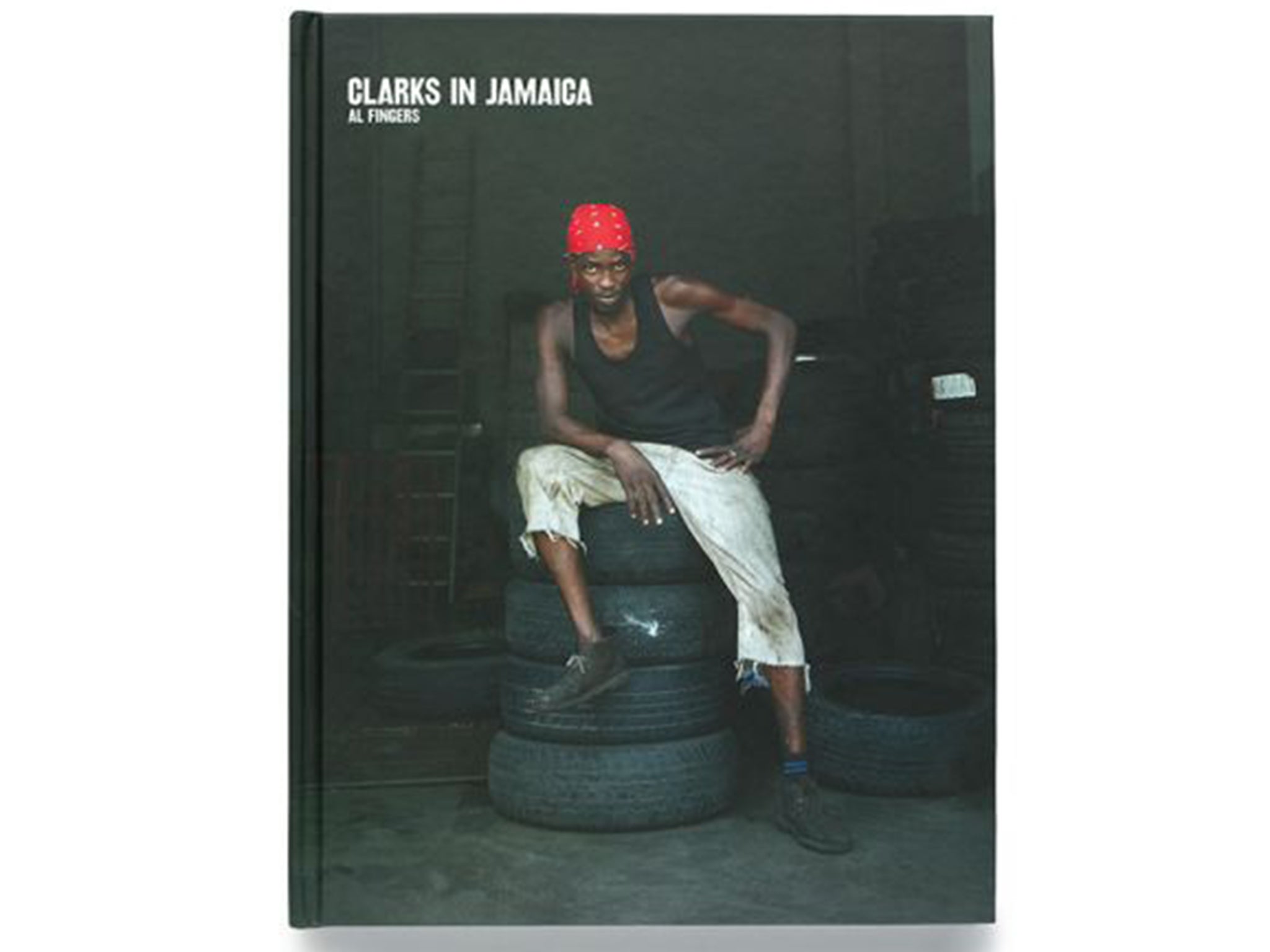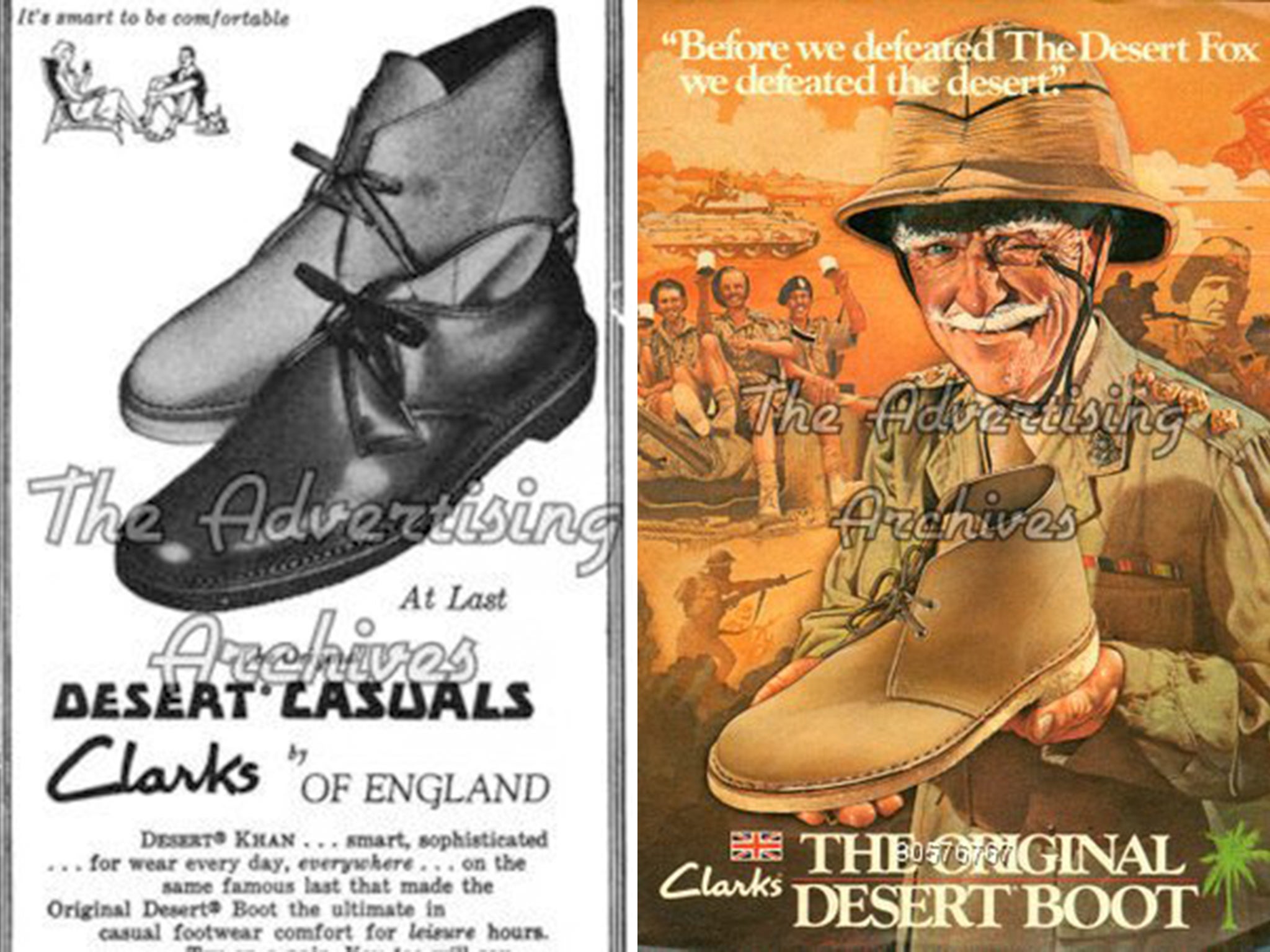Clarks shoes: New reggae album pays tribute to classic English footwear – and a Jamaican status symbol
The album, Clarks in Jamaica, features 21 hardcore reggae tracks, each paying lyrical tribute to the English shoe

At the outset of the new Booker Prize-winning novel A Brief History of Seven Killings, set in Jamaica, a dying man draws his little boy’s attention to his most visible treasured possession – the Clarks shoes on his feet.
And with his father expiring from a killer’s bullet, the 10-year-old child pulls off the shoes, puts them on, and runs for his life “clupclupclup” across the ghetto. When, moments later, he too is cornered by a gunman he tries to barter the footwear for his life: “All me can say is Clarks is good shoe.”
Founded in the early 19th century in the Somerset village of Street by a pair of Quaker brothers, Cyrus and James, Clarks is still largely known in Britain as the maker of sensible shoes for growing feet.
But in Jamaica they’re a status symbol. On Friday, unrelated to last week’s Booker success of the author Marlon James, an album called Clarks in Jamaica was released. It features 21 hardcore reggae tracks recorded between 1978 and 1988, each paying lyrical tribute to the English shoe – and none as a result of product placement.
James told The Independent on Sunday that Clarks was “an iconic aspect of Jamaican culture”. He admitted that, for a long time, “I had no idea that Clarks was British – I thought they were a Jamaican shoe”. He explained the phenomenon: “One, Clarks taps into the former British colonial tastes that we have, not in a bad way. [Secondly], Clarks represents craft and quality, and even though it wasn’t the cheapest shoe it was within the range of what Jamaicans could afford.”
I had no idea that Clarks was British – I thought they were a Jamaican shoe
Al Newman, who curated the new album and has written a book on this Caribbean fetish for sensible shoes, said: “It could be argued that no country loves a brand more than Jamaica loves Clarks.” He said that as a British schoolboy raised on the Clarks children’s range, “I was so glad when I could stop wearing them”, but then, as a reggae fan, “I started hearing Clarks reflected not just in a few tracks but in hundreds”.

The phenomenon is more remarkable given that Clarks withdrew from retailing on the island in 1973 when the left-wing leader Jamaican Prime Minister Michael Manley imposed a ban on foreign shoe imports in 1973. But demand for styles such as the desert boot, wallabee, and desert trek (known in Jamaica as the “bank robber”) remained.
Musicians with opportunities to travel to Britain became unofficial distributors of the shoes. The singer Junior Delgado would buy from the Somerset Clarks factory. The late reggae producer Junjo Lawes was known to drive from London to Doncaster to fill his car with cut-price Clarks.
Shoes were sent home in containers. “When the barrel came from England, that was the highlight in the barrel,” said James. “If you came back without Clarks, then why did you go?” Trinity recorded the tribute “Clarks Booty Skank” while, in another dance hall hit, “Scorcher” rhymed that girls “pass their remarks” each time he “put on me Clarks”.
Enjoy unlimited access to 100 million ad-free songs and podcasts with Amazon Music
Sign up now for a 30-day free trial. Terms apply.
ADVERTISEMENT. If you sign up to this service we will earn commission. This revenue helps to fund journalism across The Independent.
Enjoy unlimited access to 100 million ad-free songs and podcasts with Amazon Music
Sign up now for a 30-day free trial. Terms apply.
ADVERTISEMENT. If you sign up to this service we will earn commission. This revenue helps to fund journalism across The Independent.

The love – among men and women – for the brand has been immune to changing fashion. The controversial Jamaican artist Vybz Kartel had a huge 2010 hit with the chorus “Everybody haffi ask, where mi get mi Clarks”. Last year, Jamaican police’s intellectual property vice squad raided a fake Clarks factory, which had been operating for two years, producing thousands of pairs for retail outlets across the island.Michael Pao, director of Clarks Originals, said the raids enhanced prospects of the shoe brand officially returning to Jamaica to meet the obvious demand. “The opportunity is definitely there,” he said. “It seems every generation of music artist in Jamaica picks up on the desert boot and wallabee and sings their praises. When you hear them speak about what Clarks means to them, you get an understanding of how important it is to their identity.”
The reggae producer Ossie Thomas, 54, who is based in Jamaica and London, has an extensive collection. “It’s the durability,” he said. “If you could buy just one [pair of] shoes, you would buy Clarks.”
Join our commenting forum
Join thought-provoking conversations, follow other Independent readers and see their replies
Comments